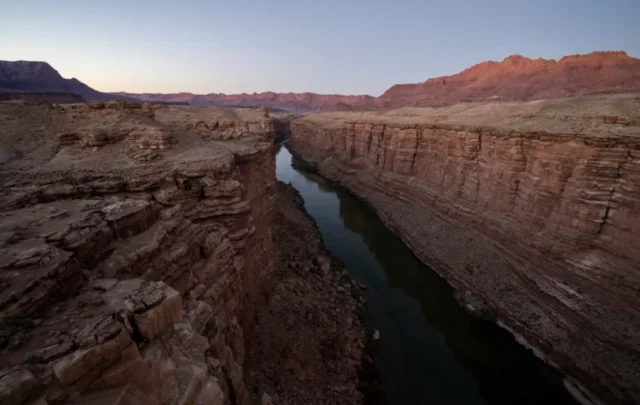Click on the headline (link) for the full text.
Many more articles are available through the Energy Bulletin homepage
Iraq, China discuss reviving Saddam-era oil deals
Ahmed Rasheed, Reuters
Iraq could hand China the first foreign contract to develop its vast oil resources if Beijing agrees to put into effect a deal originally signed with Saddam Hussein, Iraq’s Oil Ministry said on Wednesday.
While U.S. oil majors, excluded from Iraq before the U.S. invasion in 2003, wait for Iraq to pass new laws on the sector before investing, Oil Minister Hussain al-Shahristani will visit China, Japan and Australia shortly to discuss projects and developing exports, ministry spokesman Asim Jihad told Reuters.
“The minister will discuss with Chinese companies fulfilling previous contracts signed with the former regime,” he said.
…Russian and French companies that signed or negotiated deals under Saddam have been keen to hold onto the advantage in the face of challenges from firms from the United States and elsewhere. New Iraqi leaders, brought to power by the U.S.-British invasion, have yet to take decisions.
(27 Sep 2006)
More below…
Iraq’s revival of China deal heartens oil majors
Peg Mackey, Reuters
Top oil multinationals expect the revival of a Saddam-era oilfield deal between Iraq and China to pave the way for contracts giving them access to Iraq’s vast untapped reserves.
Wednesday’s news that Iraq’s oil ministry would discuss handing China the first foreign contract to develop oil resources was no surprise to Western oil executives, who say Chinese companies are eager to drill in the field they signed up for in the mid-1990s.
Western oil majors were not competing for the small al-Ahdab field in central-southern Iraq.
But some have taken heart that Baghdad is opening up and looks ready to honour its deal with China rather than hand the field to a company from the United States, which has 142,000 troops in the country.
European firms had criticised the way U.S. rivals won most big infrastructure deals after the U.S.-led invasion in 2003 and feared the same would happen with Iraq’s oil wealth.
“It’s a good way for Chinese companies to get into Iraq and could be a door opener for the next development deals,” a senior executive at a major oil company said.
… The major oil companies are confident their fields of choice — such as Bin Umar, Majnoon, Nassiriyah and Ratawi — will not be assigned to rivals from countries such as China and India.
“The Iraqis know they need the technology and finance the international oil companies can offer,” said an oil company source. “We’re meeting them on a regular basis. But we can’t sign anything that’s not backed by law.”
(28 Sep 2006)
Attacks, missteps cost Iraq $16B in oil exports
AP, MSNBC
Iraq’s most important moneymaker — its oil industry — lost $16 billion in potential foreign sales over two years to insurgent attacks, criminals and bad equipment, a secret U.S. audit says.
The Baghdad government “must take bold action” to protect its oil and electrical facilities, concludes an unclassified summary of the classified audit on Iraq’s energy sector.
(28 Sep 2006)
Iraqi Kurds raise secession threat over oil
Reuters
Iraq’s Kurdish regional government raised the threat of secession on Wednesday if the Baghdad government did not drop its claims to a say in the development of oil resources in their northern districts.
In a strongly worded response to comments by the Iraqi oil minister, the premier of the autonomous Kurdistan region said he “resented” the remarks by Hussain al-Shahristani and accused him of trying to “sabotage” foreign investment in Kurdish oil.
“The people of Kurdistan chose to be in a voluntary union with Iraq on the basis of the constitution,” Prime Minister Nechirvan Barzani said in a statement on his official Web site. “If Baghdad ministers refuse to abide by that constitution, the people of Kurdistan reserve the right to reconsider our choice.”
(27 Sep 2006)
Clashes in Iraq as parliament acts to resolve autonomy issue
Reuters, Times of Oman
Iraq’s parliament took tentative steps yesterday to resolve a deadlock over autonomous regions, an issue that has split its politicians on sectarian lines, as fresh clashes erupted in southern Baghdad. Parliament named a committee to draft amendments to the constitution — a Sunni demand — and read out a bill to allow for regional autonomy, a key demand of powerful Shiite leaders.
The two issues lie at the heart of Iraq’s sectarian divide and have hurt Prime Minister Nuri Al Maliki’s efforts to end months of political paralysis and mounting violence.
(29 Sep 2006)





